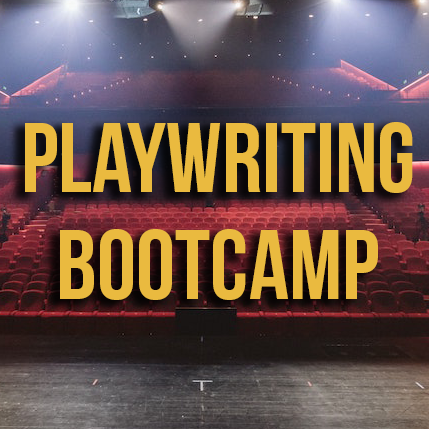Description
This intensive six-week bootcamp meets weekly on Saturdays. With a heavy emphasis on character and dialogue, award-winning playwright Morgan Smalley will teach you how to write for the theatre. By the end of the six weeks, each student in this class will have a completed one-act play.
Week 1: Overview and Introduction to Playwriting (Mar 19)
We will begin by discussing the culture of theatre, and how playwriting differs from screenwriting. We will ease into writing for the stage in a grounded way by drawing from real-life experiences.
How to enroll in the 6-week Playwriting Bootcamp:
• You can either purchase this course “a la carte”
• Or start your free trial Unlimited Script Camp membership (includes access to all classes and bootcamps, plus the weekly Writers Lab and an extensive video library, over 70 hours of live classes per month): https://scriptcamp.net/membership/
• Then join us on discord, meet Conor and your fellow students: https://discord.gg/mUtQKbtsgb
About the Instructor:
Morgan Smalley received the Humanitas Prize for playwriting in 2020. She has premiered over a dozen shorts in the DC area, and her first full-length play “Good Dogs” was produced by the Class Act Players in 2018. In addition to conducting workshops for longform improv, she has taught improv and theater skills to students with a school called Acting for Young People. She currently lives in Los Angeles, where she plans to continue to explore the theater industry and dedicatedly build her portfolio of scripts.
Course Schedule:
Week 1: Overview and Introduction to Playwriting
We will begin by discussing the culture of theatre, and how playwriting differs from screenwriting. We will ease into writing for the stage in a grounded way by drawing from real-life experiences.
Week 2: Character, Character Dynamics, and Dialogue
Our second class will go over the practice of creating compelling dialogue and characters. Onstage, in the absence of cinematic luxuries like close-ups, quick cuts, and car crashes, it is crucial to “show by telling.” We will go over tools for creating dialogue that is stylistic and compelling.
Week 3: Swinging the Pendulum
In proper “bootcamp” fashion, Class 3 will dive into a highly formulaic way of writing scripts fast. Drawing from techniques of longform-style longform improv, this class will instruct on how to sustain and escalate scenes in dialogue until a satisfying conclusion is reached.
Week 4: Structure and Scenes, Production
Theatrical structure varies widely depending on the production. Unlike movies and TV, where scenes generally last two minutes or less, stage plays tend to have much longer scenes; sometimes, plays don’t change scenes a single time for the entirety of the show. Today we will discuss methods of organizing scenes, all the while ensuring the strength of one’s promises, progress, and payoff from start to finish.
Week 5: Theme and Production
Understanding how best to incorporate the technical elements of theatre into your stage play is an important skill for any playwright. Lighting, sound, and set design can elevate the meaning of your words and better engage the audience. Additionally, this class will focus on writing specific themes by studying the “winners” and “losers” of various scenic interactions.
Week 6: Workshopping
In theatre, staged readings are a common practice for playwrights to gain exposure and feedback to improve their scripts. This class will be a workshop class, where students can bring in scenes to share and discuss.







Reviews
There are no reviews yet.